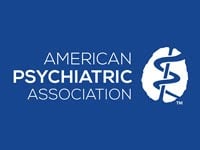Though research has shown some psychiatric populations to be at risk for disadvantages involving...
Patients With Psychosis, Nonopioid SUDs More Likely to Receive Referral to Specialist
 |
“Referral patterns for behavioral health diagnoses are an important component of high-quality primary care,” wrote Kimberley H. Geissler, Ph.D., and John E. Zeber, Ph.D., of the University of Massachusetts. “Optimizing referral patterns is a key way to improve coordination of care and resource allocation.”
Geissler and Zeber analyzed data drawn from 20,000 primary care visits described in the 2011-2015 National Ambulatory Medical Care Survey. The researchers wanted to determine whether primary care physicians had different referral rates for visits with a primary behavioral health diagnosis compared with other visits, and to see if referral rates differed depending on what kind of behavioral health diagnosis the patients had. They grouped diagnoses for behavioral health conditions as psychoses, opioid use disorder, substance use disorder, depression, and all other behavioral diagnoses.
Overall, a primary behavioral health diagnosis was present in 3.5% of primary care visits. In general, visits with behavioral health diagnoses were more likely to result in referrals. However, when the researchers looked at specific categories of behavioral health conditions, they found that only visits with a diagnosis of psychosis or substance use disorder that did not involve opioids were significantly more likely to result in a referral compared with visits without a behavioral health diagnosis. Visits with a diagnosis of depression or another behavioral health condition were no more likely to result in a referral than visits without a behavioral health diagnosis.
“Our findings document clinically meaningful differences in [primary care physician] referral rates for patients with primary behavioral health diagnoses, which vary substantially by behavioral health condition,” Geissler and Zeber wrote. “In future studies, researchers should examine whether referral rates represent adequate treatment for behavioral health conditions and influences on these referral patterns.”
For related information, see the Psychiatric Services article “Primary Care–Mental Health Integration in the VA: Shifting Mental Health Services for Common Mental Illnesses to Primary Care.”
(Image: Tyler Olson/Shutterstock)
Follow Psychiatric News on Twitter!
And check out the new Psychiatric News Brief on Alexa-enabled devices.
And check out the new Psychiatric News Brief on Alexa-enabled devices.





